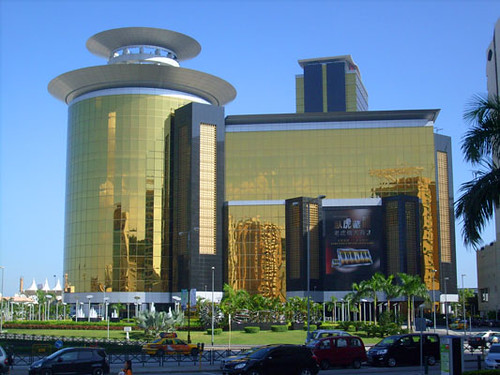The Sands Macau and Triad Henchmen
 In an exciting story pulled from the leaves of a crime thriller paperback, we have news from Las Vegas, by way of Macau. From the city that pioneered the casino, violent organized criminals strike again. This time hailing from the east.
In an exciting story pulled from the leaves of a crime thriller paperback, we have news from Las Vegas, by way of Macau. From the city that pioneered the casino, violent organized criminals strike again. This time hailing from the east.
Macau, an island off the cost of Hong Kong, is a vibrant city of industry and entertainment. Five men were convicted of crimes in a Hong Kong court last year stemming from a plot to punish, and kill, a dealer from the Sands Macau casino. The perpetrators believed the dealer to be assisting a player to cheat the casino out of millions of dollars. They initially planned to break the arms and legs of the offending dealer, but then decided they would kill the dealer. One of plotters got cold feet, and reported the group to the police.
According to newly released trial transcripts, Cheung Chi-tai was the leader of the plotters, though he was never forced to appear before a judge, nor was convicted. Cheung was identified as the leader of Wo Hop To, one of Hong Kong's organized crime groups often associated with the Triads. Interestingly, Cheung was also "the person in charge" of a VIP room at the Sands Macau. Through a business Cheung partially owned (a game promoting company referred to as a casino junket), he brought rich patrons to the VIP, and had an arrangement to share in the profits of the establishment.
This association puts the Sands corporation at risk of violating Nevada gaming laws prohibiting unsavory connections to organized crime. The Sands Macau could even lose its gaming license. US based casinos have been drawing fire for their associations with criminal organizations overseas, such as the MGM Mirage's Pansy Ho and her father Stanley Ho's believed connections to organized crime. Many have ties to the junket industry, third parties which extend credit to players, act as collections agents, and encourage gaming. Evidently, some of these junket operators are a bit seedy.
The article at Reuters is much longer than my post, and worth the read. It demonstrates the risks and rewards of operating casinos in Macau, and exposes just how important organized crime is to their operation. Furthermore, it makes clear that though much of what occurs is illegal, the government profits nicely from casino taxes, and the local economy is booming due to their existence. This is a relationship that is unlikely to soon diminish.